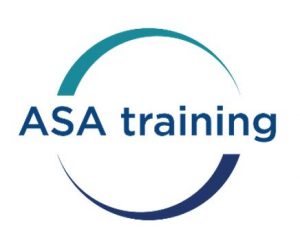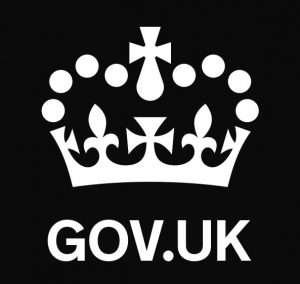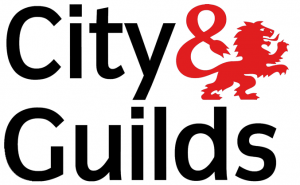This policy is due for review in August 2025.
The purpose of this exams policy is:
- to ensure the planning and management of exams is conducted efficiently and in the best interests of candidates;
- to ensure the operation of an efficient exams system with clear guidelines for all relevant staff.
It is the responsibility of everyone involved in the centre’s exam processes to read, understand and implement this policy.
Where references are made to JCQ regulations/guidelines, further details can be found at www.jcq.org.uk
Exam responsibilities
The head of centre:
- has overall responsibility for the training provider as an exams centre and advises on appeals and re-marks.
- is responsible for reporting all suspected or actual incidents of malpractice – refer to the JCQ document Suspected malpractice in examinations and assessments.
Centre administrator:
- manages the administration of internal exams and/or external exams.
- advises the senior leadership team, subject and class tutors, and other relevant support staff on annual exams timetables and procedures as set by the various awarding bodies.
- ensures that candidates are informed of date and time of planned exams.
- checks with educational practitioners that the necessary coursework and/or controlled assessments are completed on time and in accordance with JCQ guidelines.
- maintains systems and processes to support the timely entry of candidates for their exams.
- receives, checks and stores securely all exam papers and completed scripts and ensures that scripts are dispatched as per the guidelines (if paper based).
- administers access arrangements and makes applications for special consideration following the regulations in the JCQ publication A guide to the special consideration process.
Lead invigilator/invigilators are responsible for:
- assisting the exams officer in the efficient running of exams according to JCQ regulations.
- collection of exam papers and other material from the exams office before the start of the exam (If paper based).
- collection of all exam papers in the correct order at the end of the exam and ensuring their return to the exams office (if paper based).
Candidates are responsible for:
- confirmation and signing of entries.
- understanding coursework / controlled assessment regulations and signing a declaration that authenticates the coursework as their own.
- ensuring they conduct themselves in all exams according to the JCQ regulations.
Equality Legislation
All exam centre staff must ensure that they meet the requirements of any equality legislation.
The centre will comply with the legislation, including making reasonable adjustments to the service that that they provide to candidates in accordance with requirements defined by the legislation, awarding bodies, and JCQ. This is the responsibility of the head of centre.
Access arrangements
The educational practitioner, will inform the head of centre, of candidates with special educational needs and any special arrangements that individual candidates will need during the course and in any assessments/exams.
A candidate’s access arrangements requirement is determined by the head of centre.
Ensuring there is appropriate evidence for a candidate’s access arrangement is the responsibility of the head of centre.
Submitting completed access arrangement applications to the awarding bodies is the responsibility of the centre administrator.
Invigilation and support for access arrangement candidates, as defined in the JCQ access arrangements regulations, will be organised by the centre administrator.
Managing invigilators
- External staff will not be used to invigilate examinations.
- Recruitment of invigilators is the responsibility of the head of centre.
- Securing the necessary Disclosure Barring Service (DBS) clearance for new invigilators is the responsibility of the centre administrator.
- DBS fees for securing such clearance are paid by the centre.
- Invigilators are recruited, timetabled, trained, and briefed by the head of centre/quality.
Malpractice
The head of centre in consultation with the managing director is responsible for investigating suspected malpractice.
Exam days
The centre administrator will make the question papers (if paper based), other exam stationery and materials available for the invigilator.
The insert Invigilator will start and finish all exams in accordance with JCQ guidelines.
Subject staff may be present at the start of the exam to assist with identification of candidates. Any staff present must be in accordance with the rules defined by JCQ concerning who is allowed in the exam room and what they can do.
Exam papers must not be read by subject staff or removed from the exam room before the end of a session.
After an exam, the centre administrator will arrange for the safe dispatch (if paper based) of completed examination scripts to awarding bodies, working in conjunction with head of centre.
Learners
The centre administrator will provide written information to learners in advance of each exam series. A formal briefing session for candidates may be given by the educational practitioner.
In an exam room candidates must not have access to items other than those clearly allowed in the instructions on the question paper, the stationery list, or the specification for that subject. This is particularly true of mobile phones and other electronic communication or storage devices with text or digital facilities. Any precluded items must not be taken into an exam room.
NEBDN Exam Requirements
The NEBDN use a system called “Maxinity” to conduct all their exams. https://maxinity.co.uk/
Each learner will be invited to attend a preparation session through Maxinity. This session will explain the requirements of the upcoming exam.
Exams are held monthly.
Learners are NOT PERMITTED to discuss the exam or exam content, before, during or after they have sat the exam, this includes through social media. If this situation occurs, this will be referred to Fitness To Practise (FTP).
Exams can be sat in any suitable setting. At home, practice or other. The room MUST be private and free from any interruptions for the duration of the exam. The walls must also be clear of any information that could be deemed as a support during the exam. Maxinity will be able to detect anything or anyone in the room that isn’t allowed. If this paraphernalia is not removed before the exam, the learner risks failure due to malpractice.
|
Permitted during exam
|
Not permitted during exam |
|
|






